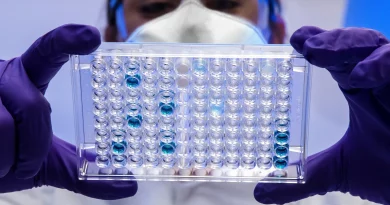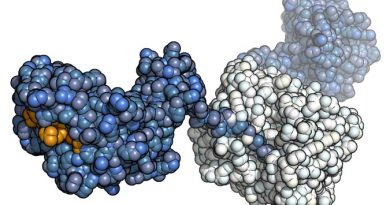Drug-Induced Kidney Injury (DIKI) Assay Panels
Signatope provides advanced assay panels designed to precisely detect and quantify clinically relevant biomarkers for drug-induced kidney injury (DIKI).
The revolutionary SIGNATOXTM technology empowers researchers and pharmaceutical companies with unparalleled accuracy, efficiency, and cross-species applicability in drug safety testing. This innovative solution addresses the critical need for precise and reliable biomarker quantification, significantly enhancing safety assessments in both preclinical and clinical trials.
Drug-Induced Kidney Injury (DIKI) Assay Panels
Traditional methods for evaluating drug-induced kidney injury (DIKI) often suffer from limitations. Inconsistent results across species and lengthy turnaround times can hinder the drug development process, raising costs and delaying life-saving treatments. The revolutionary SIGNATOXTM assay panels developed by Signatope transcend these barriers. This next-gen technology empowers researchers and pharmaceutical companies with a comprehensive suite of immunoassays designed to precisely quantify key protein biomarkers associated with DIKI.
The novel SIGNATOXTM assay panels allow for the simultaneous quantification of both tubular and glomerular protein biomarkers within a single analytical run. These assays are applicable across multiple species, including non-human primates, dogs, rats, and cats, making them versatile tools for diverse research and testing needs. Validated according to FDA and EMA guidelines, these assays ensure the highest standards of reliability and accuracy, meeting regulatory requirements and supporting robust safety assessments.
Essential Tools for Safety Toxicology Assessments
Signatope’s DIKI panels are essential tools for both preclinical and clinical safety assessments. By providing detailed insights into kidney health, these panels facilitate the early detection of nephrotoxicity, which is crucial in pharmaceutical development. Early identification of nephrotoxic effects in drug candidates can prevent costly late-stage failures. Additionally, the validated assays and detailed reports support regulatory submissions, facilitating smoother approval processes. Comprehensive biomarker panels also enhance toxicology studies by providing a thorough understanding of the toxicological profiles of new compounds, thereby contributing to safer drug development.
Revolutionising Biomarker Discovery of DIKI
Focusing on the glomerular biomarker candidates accepted at the FDA’s Biomarker Qualification Program—Nephrin (NPHS1), Podocin (NPHS2), and Podocalyxin (PODXL)—Signatope developed two panels addressing both tubular and glomerular injury. These biomarkers are crucial for assessing kidney function and damage, and their inclusion in the FDA’s program underscores their clinical relevance and importance in nephrotoxicity testing.
In research settings, these panels offer invaluable insights for biomarker discovery, mechanistic studies, and comparative studies. High sensitivity and specificity enable the discovery and validation of new kidney injury biomarkers, while detailed quantification of biomarkers allows researchers to unravel the mechanisms underlying kidney injuries and diseases. The ability to use these assays across multiple species supports comparative studies, advancing translational research from animal models to human applications.
Extensive Experience and Efficient Workflows
Signatope’s extensive experience in biomarker quantification since 2016 ensures superior results. Their efficient workflows require minimal sample amounts and allow the analysis of hundreds of samples within a week, significantly faster than traditional targeted proteomics approaches. The batch processing concept, which includes calibration curves and biological quality control samples, ensures reproducibility and reliability in every analysis. Detailed reports designed to support data submissions seamlessly provide clear and actionable insights.
Innovative and Proprietary Technology
Signatope’s proprietary technology combines motif-specific antibodies with mass spectrometric readout, ensuring high-affinity binding and accurate quantification of target biomarkers. This technology provides high sensitivity, capable of detecting low-abundant biomarkers in various biological samples, including plasma, urine, tissues, cell pellets, or lysates. Mass spectrometry provides a precise and accurate readout, ensuring the highest data integrity.
Rigorous Assay Validation for Reliable and Reproducible Results
The assays developed by Signatope undergo rigorous validation to ensure consistent and reproducible results across different sample types. This validation encompasses various matrices such as EDTA-plasma, tissues, and cells, ensuring broad applicability for both preclinical and clinical samples.
Tubular biomarkers such as α-1-Microglobulin (AMPB), Clusterin (CLU), Cystatin 3 (CST3), Kidney Injury Molecule 1 (KIM1), Neutrophil Gelatinase-Associated Lipocalin (NGAL), Osteopontin (OPN), and Retinol Binding Protein 4 (RBP4) are measured to assess kidney tubular health. Glomerular biomarkers including Nephrin (NPHS1), Podocin (NPHS2), and Podocalyxin (PODXL) are quantified to evaluate glomerular function and damage.

Comprehensive Biomarker Quantification Support Services
Signatope offers comprehensive support and guidance throughout the quantification process. Their team of experienced scientists assists with experimental design, sample preparation, and data analysis, ensuring that clients obtain meaningful and interpretable results. Specific sample requirements include non-spun urine with a minimum amount varying by panel, stored at -80°C and shipped on dry ice.
Supported by Extensive Scientific Literature
The methodologies and results of Signatope’s assays are supported by extensive literature. For instance, Gautier et al. (2016) evaluated novel biomarkers of nephrotoxicity in Cynomolgus monkeys treated with gentamicin, while Naboulsi et al. (2024) utilised immunoaffinity proteomics for kidney injury biomarkers in male beagle dogs. These studies highlight the versatility and reliability of Signatope’s assays across different species and conditions. Furthermore, Hoeppe et al. (2011) demonstrated a novel immunoaffinity approach to reduce complexity in mass spectrometric protein identification, and Anselm et al. (2021) quantified HMGB1 in EDTA plasma using immunoaffinity-based liquid chromatography mass spectrometry, underscoring the precision and applicability of Signatope’s technology.
Developing Cutting-Edge Immunoassays
Signatope is currently developing immunoassays for drug-induced kidney, liver, vascular, and pancreas injury. Their test system is unique in its capability to quantify identical protein biomarkers across all species using identical tests in both preclinical and clinical phases. These standardised cross-species assays streamline test procedures in preclinical and clinical development, making cross-validation of different tests obsolete, and significantly advancing translational safety biomarker research.
For more information, please contact Signatope via the Quick Contact Forms or email: info@signatope.com






